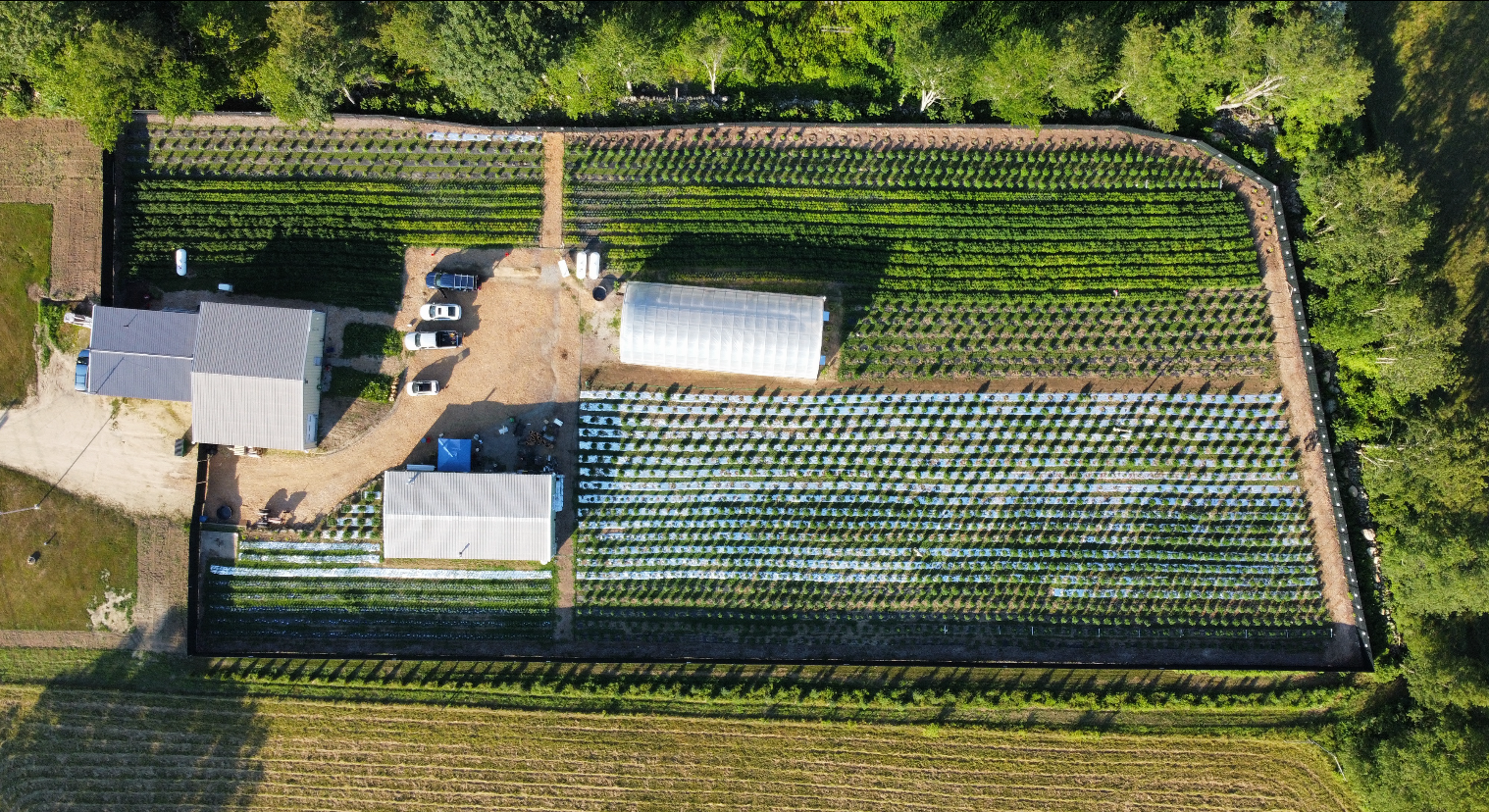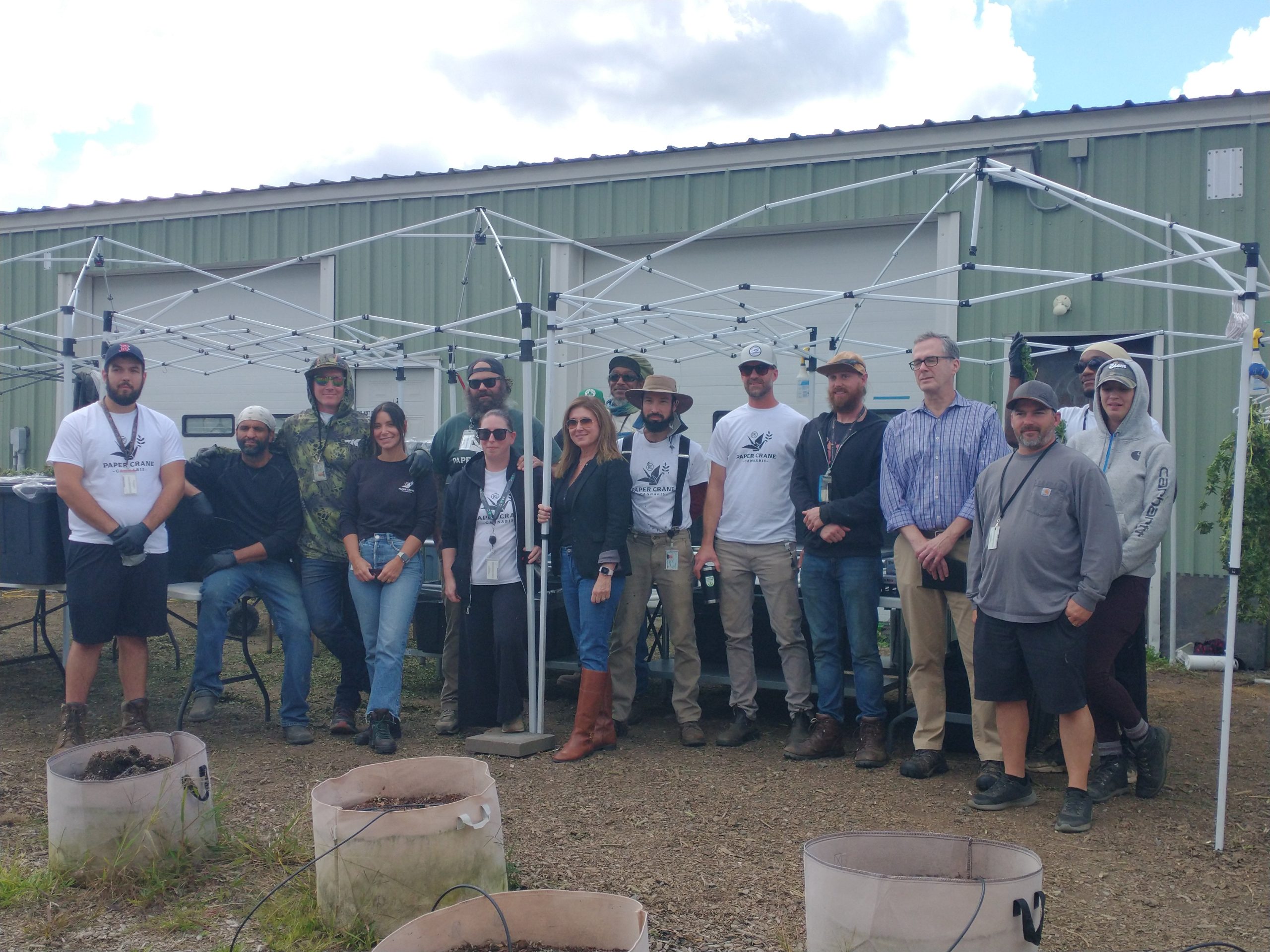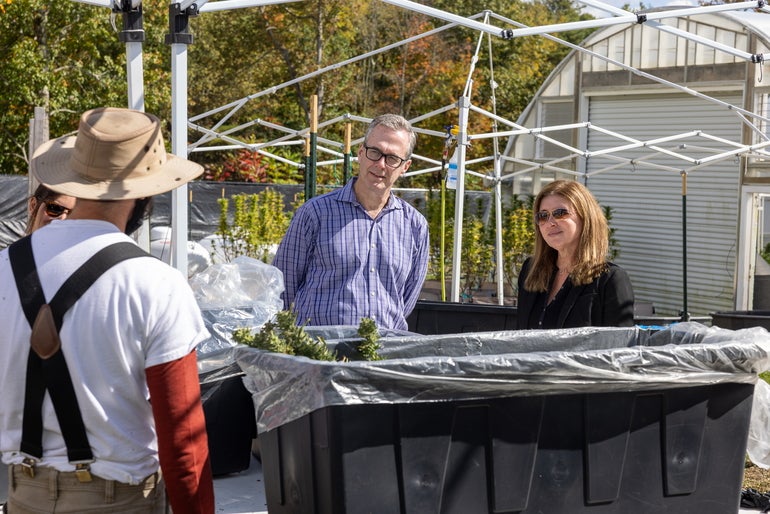Massachusetts cannabis regulators took a guided tour of a Hubbardston-based outdoor cannabis farm on Thursday, in an attempt to learn more about issues facing the relatively-small number of businesses in the state who have attempted to take marijuana production back to its outdoor roots.
Bruce Stebbins and Kimberly Roy, two of the state’s four cannabis commissioners, visited Paper Crane Cannabis to witness first-hand the realities of running an outdoor cannabis farm. There are 25 outdoor cannabis farms in Massachusetts who have been given state permission to commence operations.
“This has been great,” Stebbins, who is currently serving as active chair of the CCC, said following the tour. “For me, outdoor cultivation fits with a lot of the farming traditions in Central and Western Mass. I love wearing the economic development hat, and [Paper Crane] came in and re-energized a piece of property that sounded like it was a bit of a blight in the neighborhood and are cleaning it up and putting it back to a good, natural use.”
Paper Crane was started by husband-and-wife team Boey Bertold and Lisa Mauriello. The duo started the company after Bertold participated in the state’s social equity program. Bertold was eligible for the program following a 2007 arrest for cannabis trafficking.
Many indoor cultivators in Massachusetts have struggled to keep their lights on in the current cannabis economy. Outdoor growers face additional challenges, including weather, pests, and skepticism from customers who have become accustomed to consuming cannabis grown indoors.
“It’s important to hear directly from owners and what they are facing,” Roy said after the tour. “New England is challenging [for outdoor growers]. It’s not like California, where there’s copious amounts of sunlight all the time. My hat is off to folks who take this on and are able to navigate not only the seasons but the industry, with the challenges they currently face.”

With the plant being grown outdoors for thousands of years before cannabis laws forced growers indoors, enthusiasts for outdoor-cultivated cannabis argue it leads to higher levels of certain terpenes, substances which give particular cannabis strains their unique taste and effects. They point to the extreme electrical demand caused by lightening and HVAC systems used in door indoor grows, where a single facility can draw as much energy as a small residential neighborhood.
“We’re very happy that everybody chose to come here and to see how we’re approaching this style of cannabis cultivation, because this is the most accessible way for a lot of people, and it’s also the most holistic way to grow,” said Bertold. “It leads to a fantastic product, a healthy lifestyle, and a good feeling that you’re not an anchor on the electrical grid.”
Paper Crane’s 2024 harvest is near its conclusion, with many of the plants already being pulled and processed, but dozens remained in the growing stage in an on-site hoophouse, giving commissioners a chance to see and smell the plant up close.
Topics discussed as state officials and Paper Crane employees toured the grounds included testing requirements, the state’s social equity program, and difficulties in collecting payments from struggling cannabis retailers.
The tour follows an August listening session where outdoor cannabis cultivators were given a chance to provide feedback to regulators, where members of the Sungrown Cannabis Alliance presented a number of requests, including a reconsideration of the state’s strict testing requirements.
Many outdoor cultivators feel the state’s policy of requiring testing for total microbial levels ignores the realities of cultivating cannabis in the uncontrollable environment of outdoors, instead asking testing be focused on specific pathogens known to cause harm to humans.

Many outdoor farmers are forced to use irradiation machines to kill pathogens in products causing them to fail testing. This practice has alarmed some consumers, but many outdoor growers downplay any potential risks created by irradiation, citing its approval by the U.S. Food and Drug Administration for use on various food items.
“I’ve drafted regulatory changes proposals that have gained traction. I understand the subject,” Suehiko Ono, a grower with experience in Western Massachusetts and New York, helped create the Sungrown Cannabis Alliance, told WBJ in May. “From that standpoint, it is my belief that the radiation technologies do not cause further harm.”
The CCC will be back in public session on Monday, when it hosts a listening session on proposed delivery, microbusiness, and medical marijuana telehealth regulations. That meeting is set to kickoff at 10 a.m. at the agency’s headquarters at Union Station in Worcester.
Eric Casey is a staff writer at Worcester Business Journal, who primarily covers the manufacturing and real estate industries.

